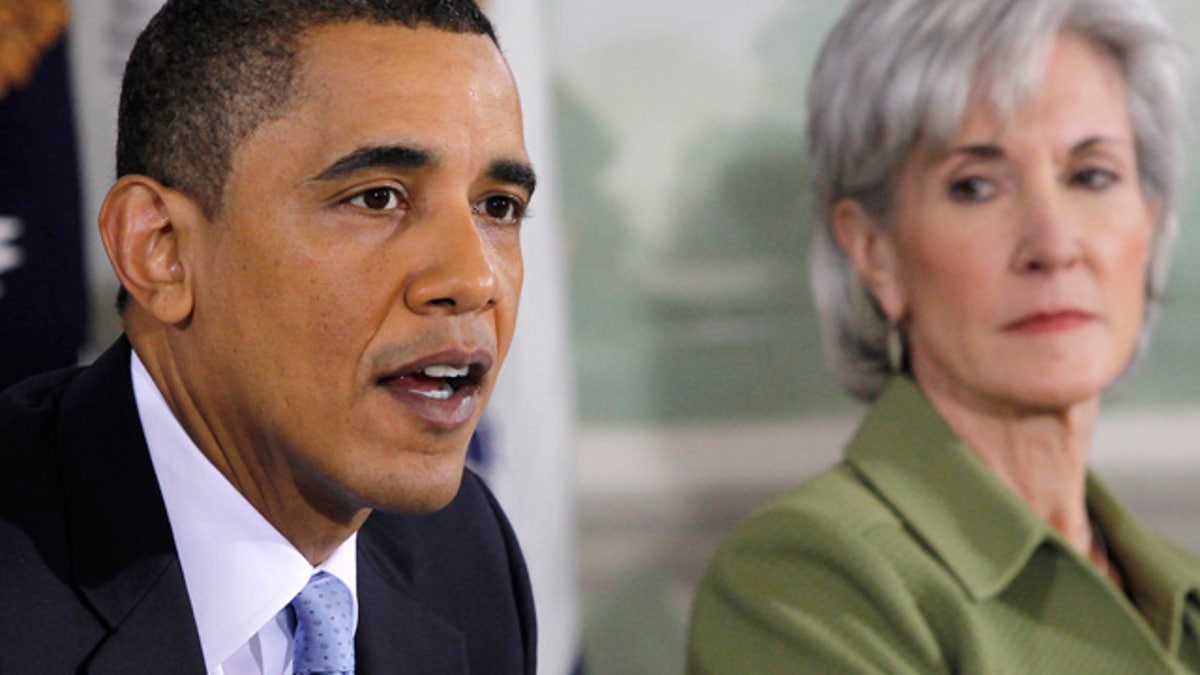
(Reuters)
PENSACOLA, Florida -- The Obama administration will try to persuade a federal judge Tuesday to throw out a lawsuit by 20 states that claim the president's health care overhaul is unconstitutional.
The fight will primarily be over sections of the law that will require individuals to have health insurance or face tax penalties and require states to pay additional costs for the Medicaid health insurance program for the indigent that are not covered by the federal government.
Attorneys defending the law will argue that the section requiring health insurance doesn't take effect until 2015 and it's up to an individual taxpayer -- not the states -- to challenge the law then. The government has said it has the right to create the insurance mandate under the commerce and general welfare clauses of the Constitution.
Florida's Republican Attorney General Bill McCollum filed the lawsuit just minutes after President Barack Obama signed the 10-year, $938 billion health care bill into law last March. He chose a court in Pensacola, one of Florida's most conservative cities. The country's most influential small business lobby, the National Federation of Independent Business, has joined McCollum's suit, and a similar case is unfolding in Virginia.
There, the Obama administration also tried to get the lawsuit dismissed, saying Virginia lacked standing to sue, but a federal judge has allowed it to continue, ruling that the overhaul raises complex constitutional issues.
Timothy Jost, a professor at Washington and Lee University law school in Virginia, said it will be difficult for the states to argue that the federal government can't force individuals to have health insurance when the law won't take effect for years.
But more than 30,000 members of the federation are already suffering, said Karen Harned, executive director of its Small Business Legal Center.
Many insurance companies have changed their plans or discontinued their policies in advance of the new law, making it more expensive for small businesses to meet the requirements, she said. Fewer than half of the country's small businesses provide employee health insurance now, she said, and the law would create a financial burden for many of them.
"We would agree with the government that the individual mandate is the key to the entire health care law, but we think the entire health care law is bad," she said.
Attorneys for the states and the Justice Department will each have 45 minutes to present their case to U.S. District Judge Roger Vinson, who is expected to release a written decision later. The lawsuit is likely to wind up before the U.S. Supreme Court, probably before the 2012 presidential election.
The other states that are suing are Alabama, Alaska, Arizona, Colorado, Georgia, Indiana, Idaho, Louisiana, Michigan, Mississippi, Nebraska, Nevada, North Dakota, Pennsylvania, South Carolina, South Dakota, Texas, Utah and Washington.




